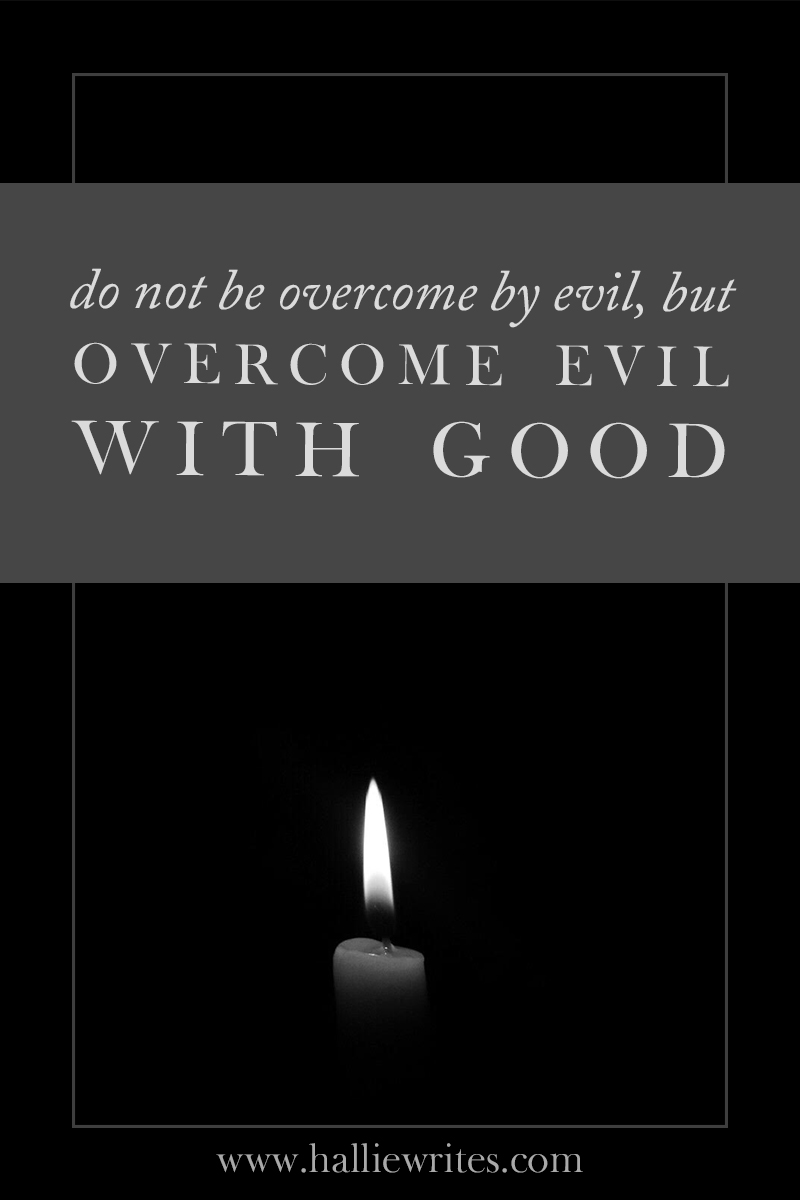biblical vocabulary: worship
/Some of us love it, some of us hate it. We sometimes name our church gatherings or sanctuaries after it. We try to avoid directing it toward an unworthy subject in the form of idolatry. But do we even know what it is?
What is this thing we call “worship”? More importantly - how does the Bible define it?
In this third installment of the Biblical Vocabulary series, we’re going to try to understand a word that already has a lot of connotations for most of us - some positive, some not, depending on who we are and how we’ve experienced religion and the church. We’ve already covered the basics of faith and joy - now, it’s time to step into worship.
What is worship?
As always, we’ll begin with the dictionary definitions, just to make sure we’re all on the same page:
reverent honor and homage paid to God or a sacred personage, or to any object regarded as sacred.
formal or ceremonious rendering of such honor and homage: They attended worship this morning.
adoring reverence or regard: excessive worship of business success.
These definitions likely don’t fall too far from the ideas that come to our own minds when we think of worship. Having grown up in the church, one of the first things I think of when I hear the word “worship” is singing, because that’s what has always been called the worship portion of the church gathering. That’s how I tend to understand the idea of honoring or adoring God.
And considering the lengths our modern American churches go to create an “experience” around this time of song, with dimmed lights and catchy melodies and emotional lyrics, I don’t think I’m alone in my preconception. For many of us, the word worship brings a lot of feelings to our attention - either positive ones of feeling “spiritually high,” or negative ones like the guilt associated when our worship doesn’t feel genuine enough.
But are these definitions Biblical?
Yes and no.
Factually, yes, worship is the act of honoring and adoring God. I’ve heard worship defined as “ascribing worth” to something or someone - in other words, treating it as if it has value. And that, I think, is a pretty accurate way to think about worship.
It’s in the connotations, not the definitions, that we begin to veer off the Biblical course.
If our picture of worship is a group of Christians singing the latest Hillsong, then our idea of worship is not Biblical. What we are actually thinking of is praise.
There are seven words in Hebrew for praise:
Tehillah: The pouring out and surrender through pain (lament-style)
Hallal: Celebration or dance
Shabach: Shouting out
Yadah: Applause or praise with hand motions
Todah: Thanksgiving
Zamar: To praise using skilled musical talent and instruments
Barak: A physical gesture, such as kneeling or bowing
As you can see, just about every praise style you can find in a church on Sunday morning is covered in the Hebrew terminology. The person who prefers to kneel, the person who can’t stop clapping with the beat (or off beat ;)), the person who plays the guitar - all of it is praise. Praise is what happens when we look upon God’s character and respond to Him properly - with delight, thanksgiving, surrender, song, and so forth. It’s a celebration of who God is that comes out of our hearts through music, words, dance, and gesture.
But, though closely related and vitally important, it’s too narrow a category to encompass worship.
So, having established what worship is not, let’s turn to the Bible to find out what it is:
Therefore I urge you, brethren, by the mercies of God, to present your bodies a living and holy sacrifice, acceptable to God, which is your spiritual service of worship.
Romans 12:1
And coming to Him as a living stone which has been rejected by men, but is choice and precious in the sight of God, you also, as living stones, are being built up as a spiritual house for a holy priesthood, to offer up spiritual sacrifices acceptable to God through Jesus Christ.
1 Peter 2:4-5
These New Testament passages appear cryptic at first glance, but they are pointing back to a pattern that the original readers surely would have recognized: the long-standing pattern of Jewish worship beginning in the Old Testament. We can’t understand worship Biblically without understanding worship throughout the whole Bible.
When God took Israel into the Promised Land to be His people, He set highly specific guidelines for worship. A huge part of their worship was to consist of animal sacrifices, which had to be carefully prepared and offered where He commanded, when He commanded, and how He commanded. An entire tribe of Israel - the Levites - became the service staff on God’s worship team. It was an enormous job and a central part of Jewish life. It required an immense investment of time and resources.
Paul and Peter are pointing back to this system when they say that our worship involves sacrifice - not of animals, but of our own living bodies, and the time and resources associated with our entire lives.
And yet even sacrifice is not the full extent of worship, as Saul’s example shows us in 1 Samuel 15:
Samuel said [to Saul], “Has the LORD as much delight in burnt offerings and sacrifices as in obeying the voice of the LORD? Behold, to obey is better than sacrifice, and to heed than the fat of rams. For rebellion is as the sin of divination, and insubordination is as iniquity and idolatry. Because you have rejected the word of the LORD, He has also rejected you from being king.”
1 Samuel 15:22-23
There is an integral part of worship, then, that is obedience. Saul could not simply sacrifice a few animals and have his worship accepted by God, because he was walking in disobedience to God’s specific commands and purposes. His disobedient efforts at worship were so opposite true worship that Samuel likened them to idolatry!
Worship is an act of obedience as much as an act of sacrifice; only obedient worship is acceptable worship. This means that, unlike praise, there aren’t seven passable ways to do it; we can’t just make it up as we go along or do what feels good to us. God decides how He wants to be worshiped, and then we obey. According to Paul and Peter, worshiping God on His terms requires not merely laying oneself across the altar in God’s temple, but becoming one with God’s temple - becoming a vessel for His presence and His plan, no longer serving one’s own needs or agenda.
Jesus may have summarized it best in His interaction with the Samaritan woman, who asked why the Jews were so attached to Jerusalem as the sole location of their worship - bringing to light, like Samuel, the tension and balance between obedience and sacrifice, between the letter of the law and the heart of the worshiper. Jesus replied,
“An hour is coming, and now is, when the true worshipers will worship the Father in spirit and truth; for such people the Father seeks to be His worshipers. God is spirit, and those who worship Him must worship in spirit and truth.”
John 4:23-24
Worship is sacrifice and obedience, done in spirit and truth. It is giving God what He has asked for from a heart of reverence and adoration for Him rather than an obsession with the rules. Its manifestation is an action, its guide is the truth, its source is the heart.
Worship is work. Work is worship.
Perhaps the best way to tie this all together in a way that makes sense is to introduce you to the Hebrew word avodah. In its simplest definition, this means “labor, service.”
We can find this word all the way back in Genesis 2, before the fall of man:
Then the LORD God took the man and put him into the garden of Eden to cultivate it and keep it.
Genesis 2:15
The word cultivate is the word avodah. Labor and service. Well before God’s perfect creation was tainted by evil, He gave man a purpose: to labor and serve, and to guard what is good.
And it’s the same word used over and over again in the Old Testament to describe the work of the priesthood, the service of the Levitical singers, the builders of the temple, and other acts of obedience to God’s commands regarding the proper worship of Himself.
When we think of worship as singing or praise only, we are thinking far too small, far too passive, far too egocentric. Praise is almost always at least in part about us - about expressing ourselves and responding to our own experience. But worship is work. Worship is active. Worship is not about us - it’s entirely about God, and offering up to Him what He has asked for, no matter how we feel about it.
Worship is avodah. Labor and service.
And this is still our purpose - we were created for this. Worship is work, and work is worship. We are to revere and ascribe worth and bring glory to our God by so much more than just singing! We are called to labor and serve, at high personal cost, in the specific ways He has commanded us: by guarding what is good, by giving and stewarding our resources, by loving one another selflessly, by bearing one another’s burdens, by using our gifts to His glory.
This is worship.
Returning to Paul’s instruction in Romans 12:
Therefore I urge you, brethren, by the mercies of God, to present your bodies a living and holy sacrifice, acceptable to God, which is your spiritual service of worship.
Romans 12:1
“Spiritual service of worship” is a phrase that has always mystified me, but it makes so much more sense in light of avodah. The Greek words Paul uses reveal his meaning with a little more clarity: “Spiritual” actually relates to the Greek logikos, meaning reason, and “service of worship” is closely correlated with the idea of sacred, priestly service. In other words, the presentation of our bodies as a living and holy sacrifice is the divinely reasonable sacred service. There is an element of practicality and logic to this worship - it’s not all nebulous emotions and metaphysical experiences. There is labor and service, obedience and sacrifice, spirit and truth.
Worship is work, and our work can be our worship. Whether you work at a desk or in a field, whether you serve under a CEO in a corporation or serve your family in your own home, you have an equal opportunity to share in the spiritual service of worship. God doesn’t demand what you do not have, He only asks for all that you have.















